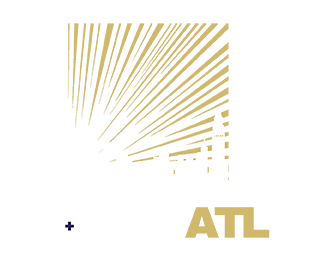Being involved in a car wreck can change a person's life in just a few…

If you are involved in a serious car accident, there is a good chance that you will suffer some sort of facial injury even if you are buckled up, and your car is equipped with airbags. A study published in the American Journal of Emergency Medicine reveals that more than half of the people injured in car accidents in the United States suffer facial injuries like bone fractures or soft tissue damage.
These injuries are often debilitating because our faces play such an important role in our lives. Our faces affect our senses and influence the way others perceive us, and we suffer both physical and psychological pain when they are disfigured. Nathan Fitzpatrick is an experienced personal injury attorney who has represented hundreds of car accident victims. In this article, he will explain why facial injuries are common in car accidents, how they are treated, and what accident victims can do to hold the negligent drivers who cause them responsible for their actions.
How Do Facial Injuries Occur in Car Accidents?
Facial injuries are common in car accidents because they can be caused in so many ways. Modern cars are packed with safety features that make accidents more survivable, but some of them actually make facial trauma more likely. Airbags deploy in a fraction of a second to prevent serious injuries, but the guanidinium and copper nitrate they contain can cause serious burns. They can also hurl debris from their plastic deployment canisters into automobile interiors at speeds in excess of 200 mph. Other common causes of facial injuries in car accidents include:
- Violent contact with dashboards, airbags, and the steering wheel
- Pieces of broken glass from windshields and side windows
- Foreign objects entering the vehicle through the windshield or a window
- Flying debris inside the vehicle
- Engine fires that spread to the interior of the vehicle
The Impact of a Motor Vehicle Accident on Facial Structures
The human face contains 14 bones and about 20 muscles. Facial bones are extremely strong, but automobile collisions can expose them to forces that are rarely found in nature. In a car accident, impact trauma can fracture bones and tear muscles; chemicals or flames can cause painful burns. Some of the most serious facial injuries caused by car accidents are suffered when passenger vehicle occupants are ejected through a windshield or window, but safety belts and airbags have made these injuries far less common.
Common Types of Facial Injuries for Car Accident Victims
Swelling and numbness can make diagnosing facial injuries difficult for emergency room doctors. Broken noses are the most common face injuries from car accidents because the nose is the most vulnerable part of the face. Other face and head injuries commonly suffered in car accidents include facial fractures and burns, ocular injuries, jaw and dental injuries, and head injuries.
Soft Tissue Injuries
Soft tissue is the muscles, ligaments, tendons, and cartilage that cushion and connect facial bones. Few people wear rigid masks to protect their faces when they venture out in public, which may explain why facial soft tissue trauma is the reason for about 10% of emergency room visits in the United States. The most common facial soft tissue injuries suffered in car accidents are abrasions and lacerations.
- Facial lacerations: The facial lacerations suffered in car accidents range from minor cuts that can be treated with a Band-Aid to deep gouges that sever nerves or tendons and cause permanent scarring. Pieces of broken glass often cause these injuries, but flying objects and airbag debris can also cause deep lacerations.
- Facial abrasions: When people talk about road rash, they are referring to the abrasion injuries car crash victims suffer when their skin comes into contact with the road or another rough surface. Serious road rash can lead to hypertrophic scarring. This facial injury is a form of scarring that develops months or even years after the original injury has healed.
Dental and Oral Injuries
Dental and oral injuries rarely cause permanent damage but can be extremely painful. Common oral and dental injuries suffered in car accidents include broken jaws, damaged teeth, and dislodged crowns or implants. Treating these injuries often requires several trips to a dentist, and surgery may be needed to repair a broken jaw. It is important to seek medical treatment for these injuries right away because insurance companies often claim that car crash victims who do not visit emergency rooms or dentists have preexisting conditions.
Facial Burns
Victims of car wrecks can suffer burn injuries caused by flames, chemicals, or friction. When doctors diagnose facial burns, they categorize them based on their severity. First-degree burns are minor and usually leave no scars, but third-degree burn injuries penetrate the deepest skin layers and can damage the bones, muscles, and tendons below. Serious burns are very painful, and even multiple skin grafts may not be enough to prevent them from causing permanent scarring and disfigurement. When this happens, victims of car accidents can suffer emotional trauma for the rest of their lives.
Facial Fractures
The 14 bones in a human face are thinner than those in other parts of the body, which means they are more likely to be fractured in a car accident. Facial fractures cause pain, numbness, and swelling, and they should be treated immediately to reduce the chances of permanent scarring or deformity. A broken nose is the most common and least serious kind of car accident-related facial fracture. Other types of facial fractures commonly suffered by car crash victims include orbital fractures, broken forehead bones, maxillary or mandibular jaw fractures, zygomatic fractures, and mid-face fractures. The most serious facial fractures are tripod injuries that break the upper jaw, cheekbone, and eye socket.
Concussions and Traumatic Brain Injuries
The extreme forces that car crash victims are subjected to can cause concussions and serious brain injuries, as well as facial trauma. People suffer concussions when a violent head movement causes the brain to impact the inside of the skull, and they often suffer symptoms like fatigue, drowsiness, nausea, and headaches for weeks. Traumatic brain injuries are even more serious. Primary traumatic brain injuries present symptoms immediately, but secondary injuries are more difficult to diagnose as their symptoms can take days or weeks to develop. These symptoms can include mood changes, memory issues, and disorientation.
Hemorrhagic Contusions
A contusion is a result of a direct impact that damages the underlying muscle and tissue without puncturing the skin. This can happen when a driver's head, forehead, or face hits the car's door, window, steering wheel, airbag, console, or even a passenger's seatbelt or a shifted object during a collision. This type of facial harm or head injury is particularly critical because it can escalate to a life-threatening condition and brain damage. Symptoms can appear rapidly, allowing minimal time before seeking urgent medical attention.
Who Pays for Facial Injuries in a Car Accident?
Virtually all car wrecks are caused by a human error of some sort, so there is almost always a reckless or negligent driver involved. If you suffer facial injuries in a car accident, you can seek compensation for your economic and noneconomic damages by submitting an insurance claim or filing a personal injury lawsuit. However, the road to compensation can be long and difficult.
The Role of a Car Accident Lawyer
Insurance companies and the lawyers who represent negligent motorists try to settle car accident claims for as little as possible, which is why people who suffer facial injuries in motor vehicle collisions often hire professionals of their own to negotiate on their behalf. Personal injury attorneys who handle car accident cases understand the process, and they know all about the tricks and delaying tactics that are used to reduce settlements and frustrate victims.
Gathering Evidence: Documenting the Facial Injuries Sustained
When insurance companies or juries calculate the amount of compensation that car crash victims are entitled to, they base their decisions on evidence like medical bills, pay stubs, and expert testimony. Doctor and hospital bills show how much an accident victim spent on medical procedures, paystubs show how much income they lost, and opinions provided by doctors and psychologists reveal how much pain, suffering, and emotional anguish they endured. Experienced attorneys can help car crash victims gather the evidence they need to prove that their injuries are serious and were suffered in a motor vehicle collision. Attorneys or their investigators could also gather evidence of negligence by visiting accident scenes to track down witnesses or look for cameras.
Negotiating with Insurance Companies: Ensuring Fair Compensation
Negotiating with insurance companies can be frustrating for people not used to prolonged questioning and delaying tactics. Insurance companies drag things out because they know that frustrated people are often willing to accept less than they are entitled to just to put an end to the proceedings. These tactics are used because they work, but they do not work as well when the person an insurance company is negotiating with is an experienced attorney. If you want to be fairly compensated for your car accident injuries, you would be wise to negotiate with a skilled attorney.
Litigation Process: Taking Legal Action
If negotiations do not lead to an acceptable settlement offer, you can file a personal injury lawsuit to seek the compensation you are entitled to. Civil lawsuits are decided based on the preponderance of the evidence, which means you will not have to prove your claims beyond a reasonable doubt if you decide to sue. The litigation process in Georgia can be bewildering to people who do not have experience in these matters, but experienced personal injury lawyers in Georgia could:
- Ensure that all parties are properly notified
- Complete and submit all of the paperwork required in a timely manner
- Gather evidence during discovery
- Question the defendant and witnesses during depositions
- File motions and argue motions filed by the defendant
- Advocate on your behalf in court
- Ensure that the damages you are awarded are paid in full
Treatments for Facial Injuries Sustained
Some facial injuries can be treated by applying a Band-Aid and taking a painkiller, but others may require multiple surgical procedures to repair broken bones, treat serious burns, or prevent disfigurement. Most facial injuries respond well to treatment and eventually heal completely, but some victims of car accidents are left permanently scarred. In these situations, victims of car accidents may be entitled to significant damages to compensate them for their emotional anguish. This is especially true when accident victims are models, actors, or have jobs that require them to deal with the public.
Medical Evaluation: Assessing the Extent of the Injury
If you suffer a facial injury in a car accident that was not your fault, you should seek medical treatment immediately. If you do not, the negligent driver who injured you or their insurance company could claim that you had preexisting injuries. When you visit an emergency room, the physician treating you will probably stabilize your injuries and stop bleeding before conducting tests. Tests are important because car crash victims who have suffered facial trauma may also have serious head or neck injuries. X-rays are usually taken to find broken bone injuries, and more elaborate tests like MRI scans may be ordered if doctors are worried about brain or soft tissue injuries.
Treatment Options for Car Accident Facial Injuries Sustained
Treating a facial injury can be challenging for emergency room physicians because the extent of the injury is not always immediately apparent. After using a saline solution to clean the wounds and remove debris, doctors may check sensory nerve and motor functions to find out if facial lacerations or abrasions have damaged the ear canals, tear ducts, or facial nerves.
Open facial wounds are closed in emergency rooms as soon as possible to prevent infections and reduce scarring. This can be done using tape, adhesives, staples, or sutures. After doctors treat facial injuries, minor fractures that do not require surgery can be set. Facial injuries often require a hospital stay, and the drugs commonly prescribed for facial injuries include anti-inflammatories, antibiotics, and pain relievers.
Facial Surgeries: Corrective Procedures
When facial injuries are serious, surgery may be required to set broken bones, treat wounds, and repair cosmetic damage. To perform facial reconstruction surgery, tissue may be taken from other parts of the body to rebuild the face. This is a very delicate procedure that requires an experienced and skilled surgeon. When doctors cannot take this approach, they may use prosthetics or implants to restore a damaged face.
Rehabilitation and Recovery: Restoring Functionality
Emergency room treatment for a serious facial injury is usually the first step on a very long road. Several skin grafts may be needed to treat serious burn injuries; broken bones can take months to heal completely. Victims of car crashes often have to apply ointment to their facial wounds for months, and some of them never recover their former looks. Facial injuries can also cause vision, speech, or hearing problems that prolong treatment and delay recovery. All of this is expensive, which is why the compensation awarded to car crash victims with severe facial injuries is often measured in the tens of thousands.
Seek Legal Support and Fair Compensation for Your Facial Injuries and Contact a Car Accident Lawyer Today for a Free Consultation
If you suffered facial injuries because another party acted recklessly or negligently, you deserve to receive all of the compensation you are entitled to. You also deserve to have an experienced attorney in your corner who will fight fiercely for your rights. The Fitzpatrick Firm has recovered millions of dollars for clients who are victims of auto accidents, and we get results for our clients at the negotiating table and in court. If you would like to speak about your legal options with a skilled attorney, you can call us at (678) 607-5550 use our form below to schedule a free consultation.


